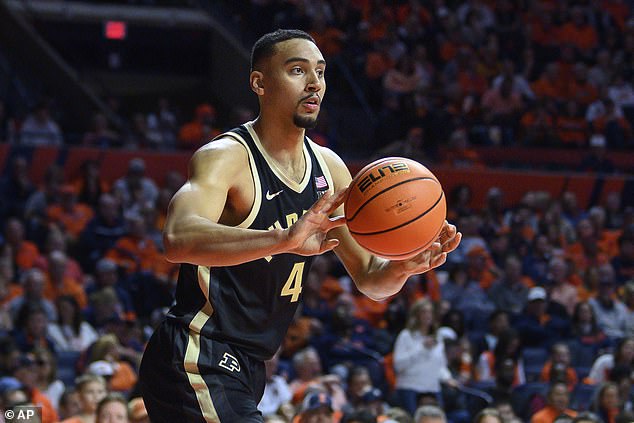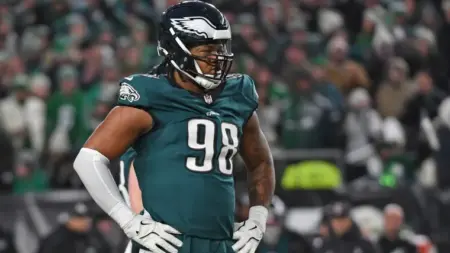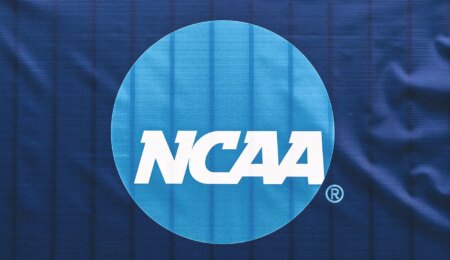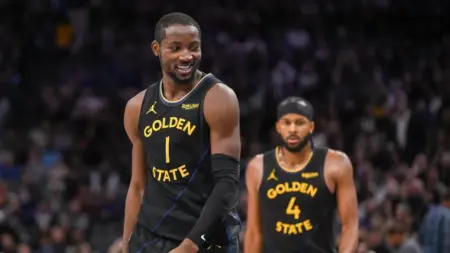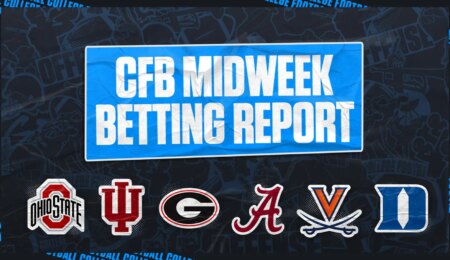The Sorrowful End to a Stellar Season
The final regular season basketball game for the Purdue Boilermakers brought more than just a loss to the team—it brought a painful and disheartening reminder of the racism that still plagues American sports. Junior forward Trey Kaufman-Renn found himself at the center of this controversy after the game against the Illinois Fighting Illini, where his 13-year-old brother was subjected to racist abuse from the Illinois student section, known as the ‘Orange Krush.’ The incident has left a bitter taste in the mouths of many, including Kaufman-Renn, who felt compelled to speak out about the ordeal.
A Heartfelt Statement from Trey Kaufman-Renn
Following the game, Kaufman-Renn addressed the media, his voice heavy with emotion. "I was informed after the game by my mom and my girlfriend that there were some racist comments being said toward my brother, as well as my family being cussed out, stuff like that," he said, his words a mix of anger and sorrow. "I just hope the security, especially at Illinois, can be better. I told them after the game that that’s something I would fight over." Kaufman-Renn was quick to clarify that his comments were not directed at all Illinois fans but at the small group of students who participated in the abuse. The incident was a stark reminder of the continued need for vigilance and action against racism in sports.
The University of Illinois Responds
In the wake of Kaufman-Renn’s comments, the University of Illinois issued a statement condemning the behavior and promising to take appropriate action. "Late in tonight’s game, Illinois staff was made aware of allegations of inappropriate comments made by members of the Orange Krush toward Purdue players, coaches, and fans," the school said. "We received additional details after the game’s conclusion. We take such allegations seriously, and we will continue gathering information to determine appropriate action." The university also reached out to Purdue to apologize and express their disappointment in the behavior of the students.
A Troubling History of Racial Controversies at Illinois
The incident at the Illinois student section is not an isolated one. The University of Illinois at Urbana-Champaign has a history of racial controversies, particularly surrounding its former mascot, ‘Chief Illiniwek.’ The chief, used from 1926 until 2007, was a symbol of the Illinois Confederation of indigenous people. However, by the mid-2000s, the name ‘Fighting Illini’ was kept as a reference to the state, not the people. The usage of the chief in logos and at sporting events had been controversial since the 1970s, with many people believing it perpetuated racist stereotypes of indigenous people. Despite the retirement of the mascot, the chief remains a symbol for some Illinois fans, and numerous petitions have sought to bring him back. Last month, the Illinois student body voted to adopt the belted kingfisher, a bird native to the state, as a new mascot, a step forward in the university’s efforts to move past its problematic past.
A Night of High Emotions and High Stakes
The game itself was a crucial one for both teams. The 18th-ranked Boilermakers, led by Kaufman-Renn’s 29 points and seven rebounds, fell to the Fighting Illini, 88-80, bringing their season record to 21-10. Despite the loss, Kaufman-Renn’s performance was a highlight, demonstrating his value to the team. On the other side, Illinois forward Will Riley led the Fighting Illini with 22 points, shooting a commanding 50% from the field. The victory was a significant upset for Illinois, and the team celebrated the win with their fans. However, the joy was overshadowed by the racist incident, which cast a dark cloud over the evening.
Moving Forward: A Call for Change
As both teams prepare to travel to Indianapolis for the Big Ten Tournament, the incident serves as a sobering reminder of the work that still needs to be done to ensure a safe and inclusive environment in college sports. Kaufman-Renn’s willingness to speak out is a testament to the strength and resilience of athletes who face such challenges. "The fact that my brother can be put in that situation is really unbelievable," he said. "For a league like the Big Ten, they just need to be better about that." The Big Ten Conference and other collegiate sports organizations must take proactive steps to address and prevent such incidents, ensuring that all athletes and their families can enjoy the thrill of the game without fear of discrimination or abuse.

